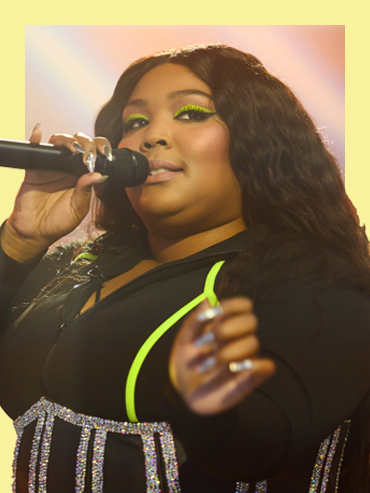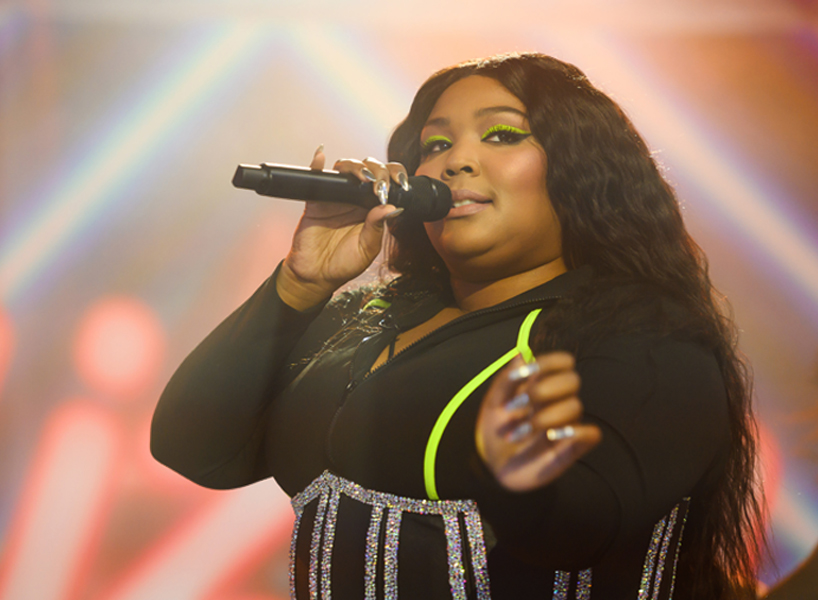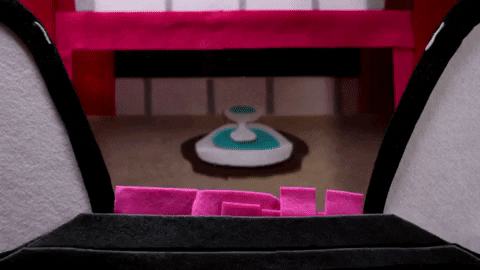Everything to Know About Lizzo’s “Truth Hurts” and All Those Plagiarism Allegations
It's a hot mess, and it's only going to get messier


Lizzo told us to blame her success on the “Juice,” but others are saying to blame it on plagiarism. The singer, rapper and flutist who has shot to superstardom over the past year as a body-positive badass with pipes that rival Aretha Franklin (and the sass to match) is in the hot seat amidst accusations of plagiarism. Three separate parties claim Lizzo plagiarized different parts of her hit songs “Juice” and “Truth Hurts,” the latter of which pretty much put the musician on the map.
It’s never fun when your faves are called out for possibly problematic behaviour, and Lizzo (a.k.a. Melissa Jefferson) is one of our absolute faves. It’s even worse when said call-out is confusing AF and we have a lot of questions. Like, how did the Lizzo plagiarism allegations even start? What exactly does it have to do with a tweet? And sorry, but who TF is Cece Peniston and what does she have to do with all this?
Here, everything you need to know about the allegations against Lizzo.
What’s this about a “Truth Hurts” tweet, and who is Mina Lioness?
While all of the plagiarism ish is coming out now, Lizzo was originally called out on social media by singer Mina Lioness in 2018. Lioness is a London-based singer who claimed that Lizzo lifted her iconic self-love line from a February 2017 tweet in which Lioness declared: “I did a DNA test and found out I’m 100% that bitch.”
I did a DNA test and found out I'm 100% that bitch.
— Cbiz..ina (@MinaLioness) February 25, 2017
The tweet was in reaction to another tweet by Demi Lovato, who excitedly declared that she was 1% African, which…OK. Lizzo’s song was released in September 2017, seven months after Lioness’s tweet.
A year later, in February 2018, Lioness got in an exchange with Lizzo on Twitter, calling her out for using her words in the song. In response Lizzo pretty much said thanks, but no thanks, telling Lioness that her inspo came from a meme. “Truth Hurts was written in June fyi—someone made a meme on IG that said ‘I’m 100% that bitch’ and we were inspired, I give that meme credit when I talk about making the song,” Lizzo tweeted. “I’ve never seen ur viral tweet but I’m glad it exists.”
Truth Hurts was written in June fyi— someone made a meme on IG that said “I’m 100% that bitch” and we were inspired, I give that meme credit when I talk about making the song. I’ve never seen ur viral tweet but I’m glad it exists.
— Feelin Good As Hell (@lizzo) February 9, 2018
Since then, it’s been relatively quiet on the western front, but shit really hit the fan over the summer when Lizzo filed to trademark the phrase “100% That Bitch” in June. According to the docs filed on June 10, Lizzo was moving to trademark the phrase à la Kylie Jenner in order to put it on merchandise, including t-shirts, jackets, jerseys, beanies, hats, bandanas and wristbands (would 100% buy).
That’s when the internet came for the body positive queen, with Lioness tweeting in August about what she saw as plagiarism, and the “Juice” singer stealing from lesser-known Black artists.
Who are the Raisen brothers?
Less than two months after Lioness tweeted about Lizzo, producer-brother duo Jeremiah and Justin Raisen threw their names into the ring earlier this month, claiming that Lizzo owes them royalties and writing credits for “Truth Hurts.” The brothers say that the melody, chords and lyrics from the hit song—including the “DNA” line—were taken from a song the three wrote together earlier in 2017 called “Healthy.”
On October 15, Justin Raisen posted clips of “Truth Hurts” alongside “Healthy” on his Instagram page, and they do sound… pretty much the same.
https://www.instagram.com/p/B3oRS_0liE_/
In the caption that begins with “The Truth about ‘Truth Hurts,'” the Raisens claim that they were never contacted about being credited for the use of “Healthy,” and believe that coming out to the public is the only way to have the situtation rectified. But, maybe it got lost in their DMs?
“The last thing we want to do is throw any negativity toward Lizzo’s momentum and movement as a cultural figure,” the brothers wrote. “If we believe in what she’s preaching, believing in ourselves & our own voices is something we thought she’d understand.” TBH, no matter how much Lizzo preaches believing in oneself, it’s maybe a stretch to believe she’d be *super* understanding about being put on blast.
OK, but who is Cece Peniston and why is she coming for “Juice?”
As if this debacle wasn’t messy enough already, Lizzo faced another plagiarism accusation on October 17 when singer Cece Peniston accused the “‘Cause I Love You” singer of copyright infringement over her hit song “Juice.” Taking to Instagram, Peniston, best known for her 1992 hit “Finally,” posted a side-by-side comparison of Lizzo’s “Juice” and her own “Finally,” writing: “@bendaworld sent me this video and this is a clear example of #copyrightinfringement Cece Peniston versus @lizzobeeating y’all check this out and btw I love her .”
https://www.instagram.com/p/B3ulc-xhKyv/?utm_source=ig_embed
Peniston’s main gripe appears to be with the ad-lib “ya-ya-ee, ya-ya-ee” in the chorus.
Both songs are undoubtedly bops, but TBQH, Peniston might as well be an astronaut—because, as one social media follower commented, the reach of her allegation is out of this world. First of all, can we even tell that what Peniston is singing *is* the now-infamous “ya-ya-ee?” She’s pretty much pulling a Selena Gomez whisper-sing.
“It’s entirely subjective,” Toronto-based entertainment lawyer Julie MacDonell says of cases of copyright infringement. While she says that experts would typically have some way to measure or break down songs with similarities, should cases of copyright infringement go to court, actually deciding whether or not a song sounds similar enough to be considered plagiarized is pretty hard. “It’s pretty subjective,” MacDonell reiterates, “[because] you’re listening to one [song], then you listen to the other, and then you go back and listen to the first [song] and then you kind of say, ‘You know what? Yes, to me it’s too similar,’ so it’s not something where there’s a strict guideline to it to be honest.” Typically, she says, these kinds of cases are settled in court.
What was Lizzo’s response to the allegations?
According to Raisen and Lioness, until recently Lizzo’s response has pretty much been:

As in, no response at all.
After their initial Twitter exchange in February 2018, Lioness commented on the singer’s inaction in an August 28 tweet-thread, writing: “What I cannot get over is how brazen Lizzo and her team have been in ignoring my whole presence. They’re doing it because they know I have no capital to address her. I’m just the poor Black girl from London that don’t have a dog in the fight.”
If she thought I had the autonomy to truly challenge her and assert my rights.. She would have been given me my writers credit. She could of rode this tweet till the wheels fell off. I would have supported through and through as long as I was credited.
— Cbiz..ina (@MinaLioness) August 28, 2019
And the Raisen brothers pretty much said the same, claiming in their post that they’d reached out to both Reed and Lizzo’s team, asking for 5% each in royalties, “but were shutdown every time.”
On October 23, after months of silence, Lizzo took to Twitter to speak out on the chatter. In her message, Lizzo denied that the Raisen brothers had anything to do with the iconic line in “Truth Hurts,” writing: “The men who claim a piece of ‘Truth Hurts’ did not help me write any part of the song. They had nothing to do with the line or how I chose to sing it. There was no one in the room when I wrote ‘Truth Hurts,’ except me, Ricky Reed, and my tears. That song is my life, and its words are my truth.”
— Feelin Good As Hell (@lizzo) October 23, 2019
But in the same post Lizzo *did* acknowledge Lioness, clarifying that she shares her success with the British singer and “not these men.”
In a tweet the same day Lioness confirmed that she is now a credited writer on the Billboard #1 song. Class act, Lizzo!
I just took a DNA Test, turns out I’m a credited writer for the number one song on Billboard.
— Cbiz..ina (@MinaLioness) October 23, 2019
So, did Lizzo plagiarize “Truth Hurts” or not?
Technically, no, according to MacDonell—at least when it comes to the tweet. “It’s definitely not plagiarizing,” MacDonell says of the lyric. “It’s really just a clever line, right?” And, MacDonell says, the tug-of-war between Lizzo and Lioness is a sign of the times. “It’s the kind of thing that happens in this day and age to be honest—people will come up with something clever, it goes viral and everybody starts using it,” she says. “It’s very difficult to control that unless you’ve filed the trademark before it did go viral.”
Which is why celebs like Kylie Jenner (and Lizzo) rush to trademark any and everything they can profit from. “Speaking generally, if you tweet something, do you own it? The answer is no, not unless you’ve claimed ownership through legal process, like a trademark filing,” MacDonell says.
Why are these Lizzo plagiarism allegations such a big deal?
While the jury’s still out on whether or not the Raisens actually have a claim to Lizzo’s breakout hit—dependent on any contracts the brothers and Lizzo may have had in place, MacDonell says—the real issue seems to be that the lyric in question is pretty defining for the singer. It’s safe to say that Lizzo’s entire brand revolves around those 12 little words. They’ve become the singer’s anthem, and a feel-good mantra for people everywhere.
And the idea that the same Lizzo who told us that we’re all “Good As Hell,” and who has been such a proponent for shaking your booty unapologetically, loving your body where it’s at (because where it’s at is perfect) and being your authentic self, would knowingly release music that’s actually inauthentic to her, is pretty upsetting.
So, what’s Lizzo going to do?
After tweeting out about Lioness and her writing credit, Lizzo proved that she’s not going to take this sitting down by filing a lawsuit against the Raisen brothers and fellow producer Justin “Yves” Rothman on October 23. According to Pitchfork, the singer is seeking “a judicial declaration” that the three “did not co-author ‘Truth Hurts,’ and have no right to co-own that work or to share in its profits.” Our girl means business.
In the lawsuit, Lizzo’s lawyer claims that the brothers “expressly withdrew any claims to ‘Truth Hurts'” in April 2019 and “assured Lizzo, again in writing, that they were making no claims to the work.” The Raisens have since denied that this is true. So it sounds like this is about to get a *whole* lot messier.
The say the truth will set you free, but sometimes, it turns out that:









